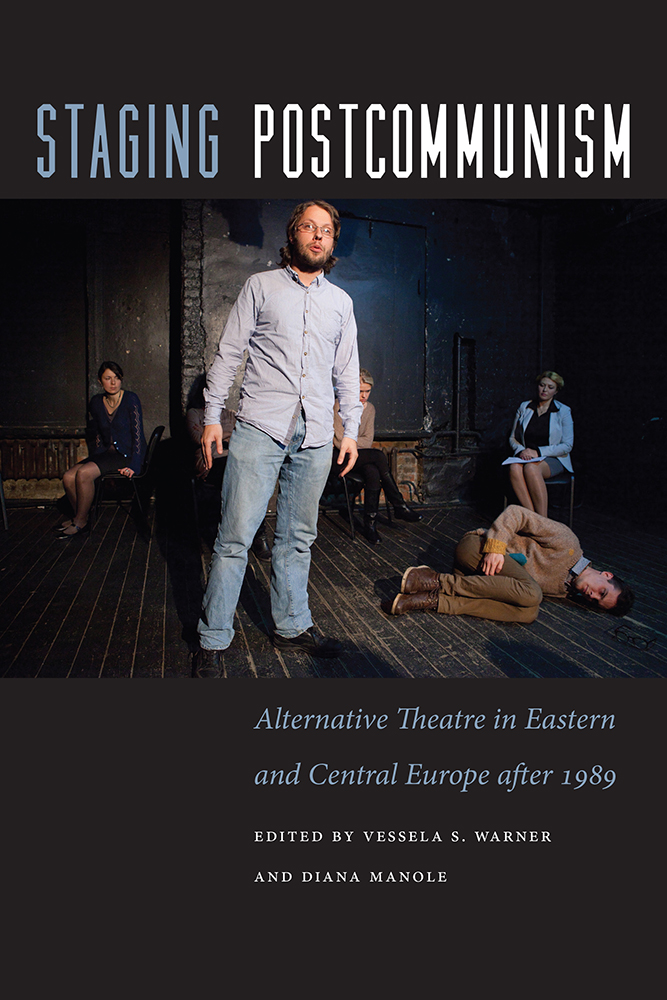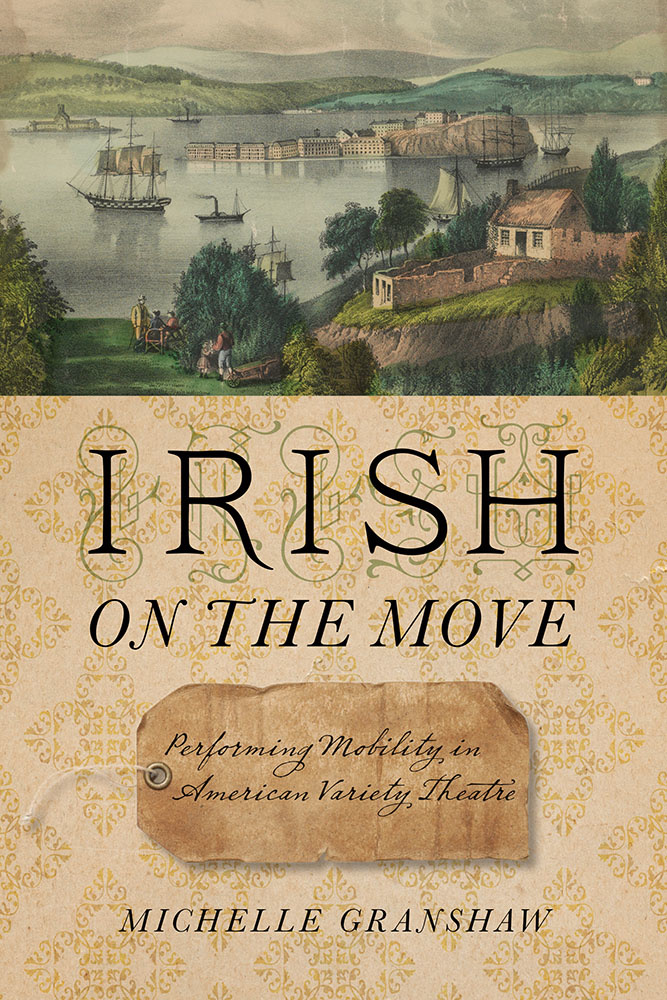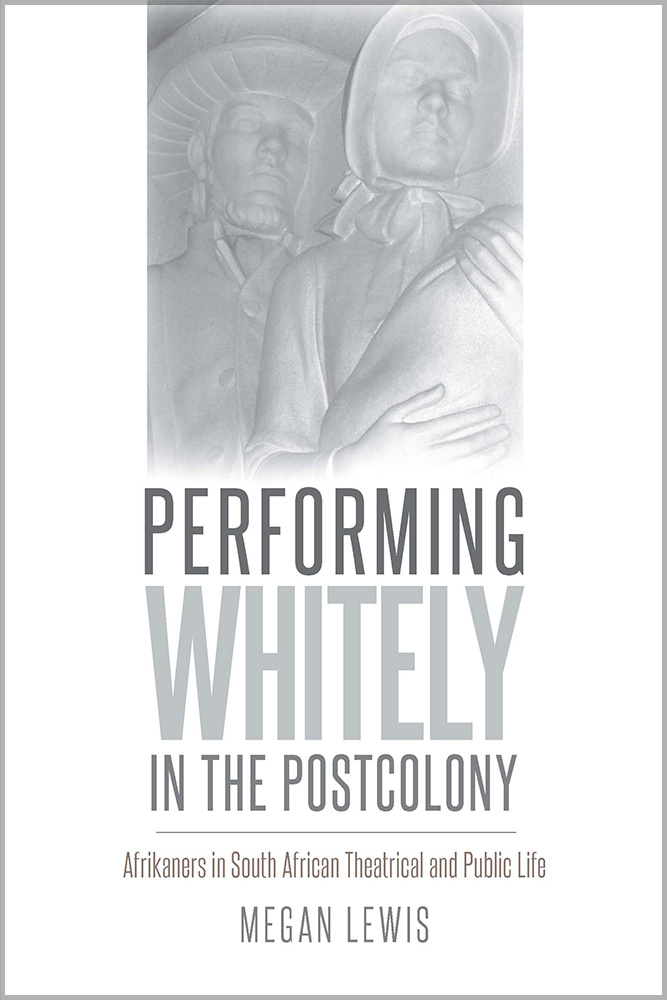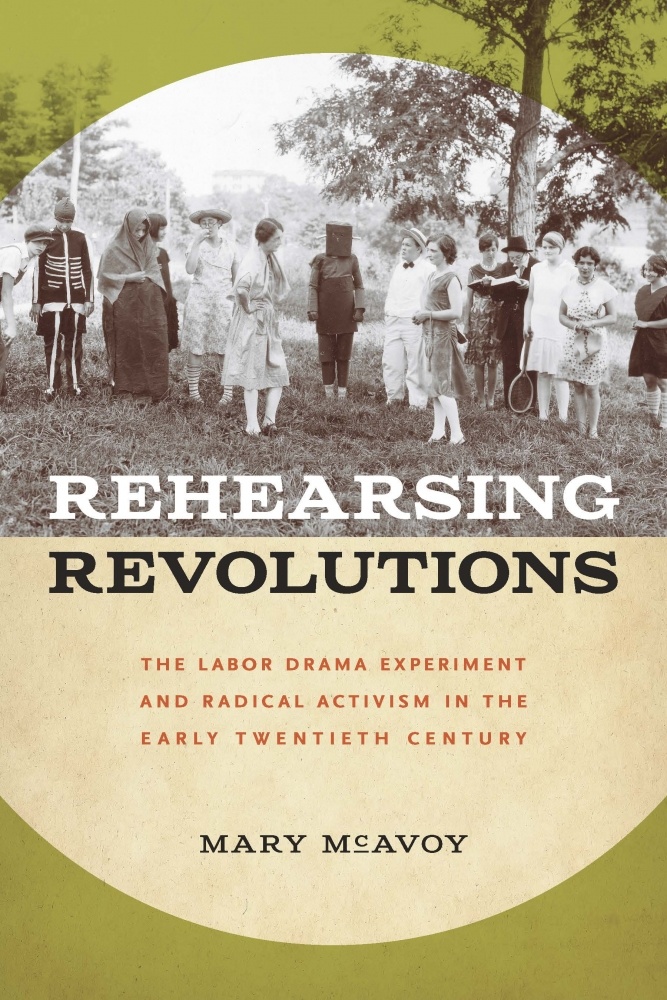ATHE Excellence in Editing Award finalist
Theatre in Eastern and Central Europe was never the same after the fall of the Berlin Wall in 1989. In the transition to a postcommunist world, “alternative theatre” found ways to grapple with political chaos, corruption, and aggressive implementation of a market economy. Three decades later, this volume is the first comprehensive examination of alternative theatre in ten former communist countries. The essays focus on companies and artists that radically changed the language and organization of theatre in the countries formerly known as the Eastern European bloc. This collection investigates the ways in which postcommunist alternative theatre negotiated and embodied change not only locally but globally as well.
“Staging Postcommunism is a two-part collection of essays that offers a rewarding journey into a region not routinely discussed, whose chartered spaces reclaim civic empowerment and whose messages, encrypted in anti-regime performances, showcase an overdue cultural reclamation throughthe stage world. . . . While reflecting on the diversity and effectiveness of alternative theatres virtually unknown outside Eastern and Central Europe, this collection of essays highlights innovative strategies and adaptations to address issues of current concern within a forward-looking transnational context.”—Theatre Journal
“Staging Postcommunism opens the door on an area of the world where theatre vibrantly looks to answer the sociological, political, and personal issues of identity that emerged following the breakup of the Soviet Union.”—Marc Robinson, St. Olaf College
“Staging Postcommunism makes an important contribution to the field in a number of dynamic modes. This fills a significant gap in the scholarship, addressing a wide range of nations and cultures in Eastern and Central Europe, whose extensive and influential theatre histories of the twentieth century to the present day are still woefully underrepresented in English-language scholarship. I read the book with great enthusiasm.”—Bryce Lease, author, After ’89: Polish Theatre and the Political
Dennis Barnett, Dennis C. Beck, Violeta Decheva, Luule Epner, John Freedman, Barry Freeman, Margarita Kompelmakher, Jaak Rahesoo, Angelina Roşca, Baņuta Rubess, Christopher Silsby, Andrea Tompa, S. E. Wilmer
2022 ATHE Excellence in Editing Award Finalist



